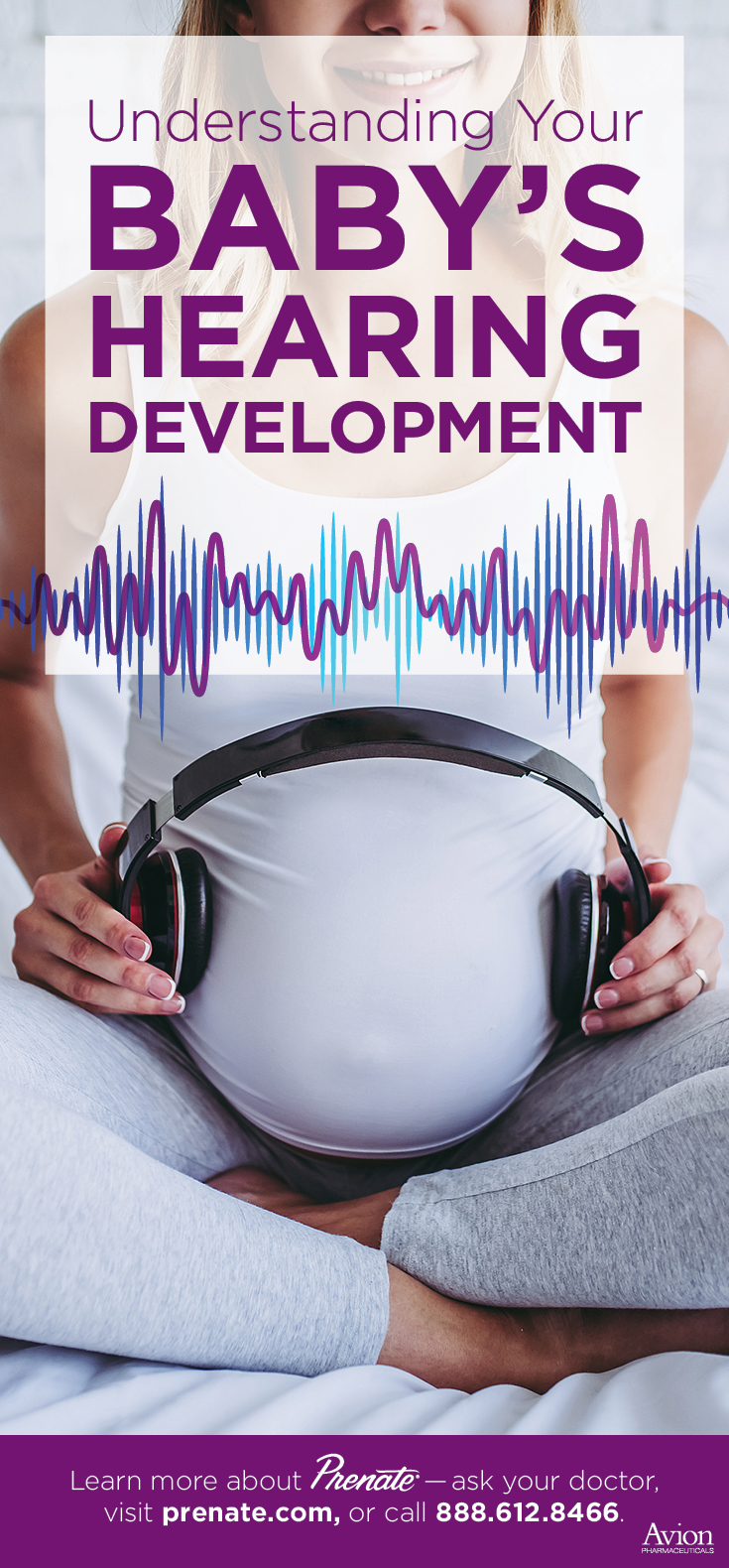What You Need to Know About Your Baby’s Hearing Development
October 10, 2019
Every day your baby is in utero, his or her hearing is developing. This important sense becomes more and more refined well before birth takes place. In today’s post, we’ll explore the typical timeline of hearing development for fetuses, from when it first develops to what your baby can hear up to labor and delivery. We’ll also talk about the importance of a complete nutrition plan for expecting moms to support their own hearing and that of a developing baby.Early Stages of Development: Weeks 4-9
Even in your fourth or fifth week of pregnancy, cells in the embryo are beginning to arrange themselves to form your baby’s face, brain, nose, ears and eyes. By week 9, indentions start to appear where the baby’s ears will grow.1
Baby First Begins to Hear: Week 18
By your 18th week of pregnancy, your baby can hear his or her first sounds! Your baby’s little ears will now begin to rapidly develop and hearing sensitivity will continue to increase.1
Heightened Hearing: Week 24
By week 24, your baby’s hearing sensitivity is heightened considerably and he or she will be more sensitive to sound.1
Responding to Sounds: Week 25-26
Not only can your baby hear sounds at this point, he or she also begins to respond to them. The most common sounds baby may respond to are mom’s voice, dad’s voice or the voices of other familiar people. Research suggests that by the third trimester, your baby can already recognize your voice and will respond with an increased heart rate, indicating greater alertness when mom is speaking.1
Responding to Sounds: Week 30-35
As your pregnancy nears the full term, your baby’s hearing continues to develop and become more sensitive. This has been documented through research and experimentation on hearing in utero, with one study finding that the baby is able to hear and respond to a wider range of sound frequencies as gestation progresses.2
Nutrients That Support Hearing Health
Eating foods that are rich in the following nutrients may help you and your baby maintain a healthy sense of hearing:
- Potassium – Regulates the fluid in the inner ear.3
- Folic acid – Helps the body generate new cell growth and improve circulation, contributing to overall health of hair cells in the inner ear.3
- Magnesium – May help protect the inner ear from loud noises. Low levels of magnesium may be linked to shrinking blood vessels in the inner ear, which can cause oxygen deprivation.3
- Zinc – Has been linked to increased cell regeneration and healing. Helps boost the immune system and ward off infections that can affect the ear.3
- Omega-3 fats – May reduce the risk of age-related hearing loss. Omega-3s also support brain function, sending signals between the brain and ears more effectively.3
Prenate® Vitamin Family
Prenate® offers a complete line of prescription prenatal vitamins created to support positive pregnancy outcomes and meet the changing nutritional needs of expecting mothers. Talk to your doctor to see if the Prenate® Vitamin Family’s prenatal vitamins are right for you.
You Are About To Leave This Website
By clicking continue, this link will take you to a website to which Alora Pharmaceuticals Policies & Terms of Use do not apply. Alora and its subsidiaries do not control the content or accuracy of third-party websites and assume no responsibility for their use.
















